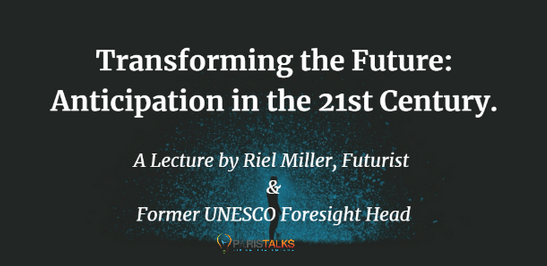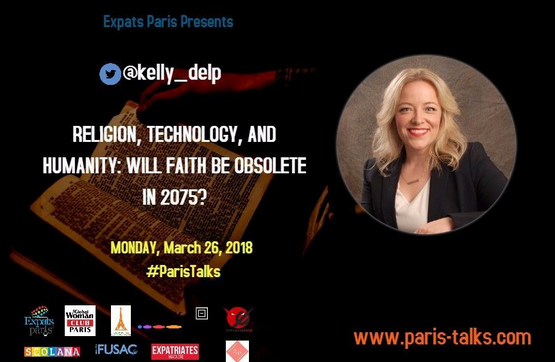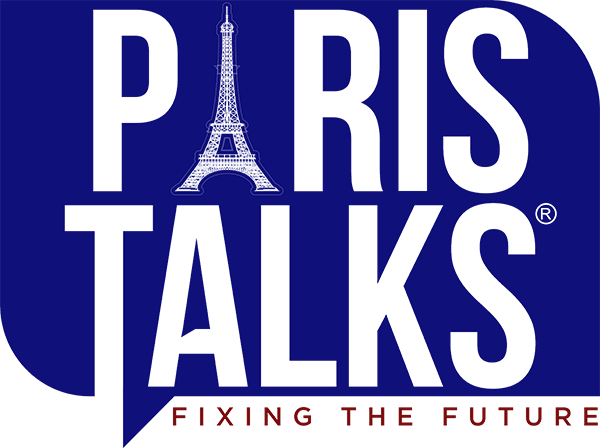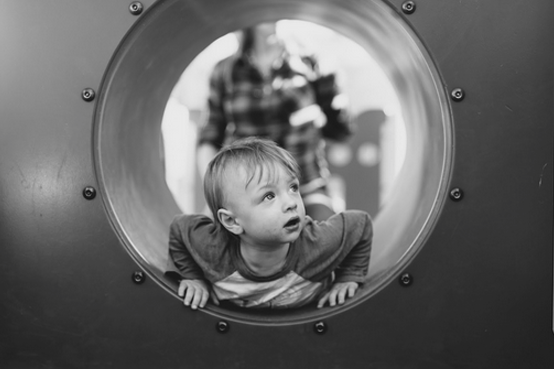
Paris Talks 2018: Great Talks, Big Ideas And The Art Of Predicting The Future Of Humanity
Attending Paris Talks is always a rewarding experience — both professionally and personally.
You’ll network with many other world-class future-minded thought-leaders from different backgrounds. You’ll spend an amazing day in one of the most beautiful theatres in Paris. And beyond all this, the two main reasons to attend Paris Talks are to hear great talks and to converse with other attendees about big ideas that are shaping the future of humanity.
The diverse and engaging talks at the Paris Talks conference will inform you of what’s happening in the world and where Humanity is headed (explained more clearly than your local newspaper), will inspire actions of your own, and will expose you to innovations happening in different sectors.
As you get ready to attend Paris Talks, we want you to know that even though listening to the talks will be extremely valuable, hallway conversations with other attendees will be even more fruitful. In addition to the 11 things you must bring to Paris Talks, we highly recommend that you do everything you can to prepare yourself for such conversations.
If you’ve read our recently published article that answers pretty much all the Paris Talks Most-Asked Questions, we assume that you have a clear and better understanding of this entire conference and now, we’d like to give you a special sneak peek into a few talks you’ll get to discover at the conference.
This is “Part One” of the Paris Talks ideas’ briefs for our attendees. The second part is coming soon. Without further ado, let’s get started:
1. Transforming the Future: Anticipation in the 21st Century. (Masterclass)

“Transforming the Future: Anticipation in the 21st Century”, will be mostly about how the role of future thinking should be emphasized in all levels of leadership, business, and social life.
This masterclass is organized for Paris Talks attendees that won’t be able to attend the full-day conference but is interested in forecasting as an “art and science.” This breakfast-masterclass-connection building opportunity is a pre-conference event that will start at 8:45 a.m. and it is dedicated to corporate futurists, Paris Talks sponsors, friends and volunteers. It’ll take place at the prestigious Parisian théâtre du petit St-Martin on March 26, 2018.
This Masterclass, presented by Futurist & Former UNESCO Head Of Foresight Riel Miller, will:
- Equip you with skills to predict and imagine future scenarios
- Teach you how to examine your own assumptions
- Give you a support mechanism in researching issues in your sector of activity, and developing a new approach toward possible solutions
- Challenge you to think critically and out of your comfort zone
- Encourage you to take action upon your newly-gained insights
The Transforming the Future breakfast-Masterclass can be booked separately from the conference, though seats are limited to a small number of attendees. At the time of publishing this post, there are still a few more Transforming the Future seats to be grabbed.
2. Building The Self-Optimizing Cities of The Future.

Cities are more than buildings and people — they’re incredibly complex, constantly-evolving systems. New technology—especially artificial intelligence and machine learning—holds the opportunity to organize and optimize those systems in new ways. This talk, presented by Vice President and Global Innovation Evangelist for SAP Timo Elliott, will take us through real-life examples of how the cities of the future will automatically adapt to changing circumstances. You’ll see impressive and inspiring examples of how technology can help deal with issues like traffic, pollution, and litter to create better health, safety, and community.
3. Automotive Technology: After 200 years we are still guessing

Robert Stevens, Director of Garage Networks and Technology at GROUPAUTO International, will take us into the near future (the next 10-20 years) to explore the potential impact of Automotive Technology evolving in unforeseen ways.
For example:
An iPod started out as a cool and simple innovation to store and play digital music files.
Later, it added the ability to place telephone calls and access the internet.
It then became a device to access locally-stored and cloud-based multimedia content and kept on growing exponentially to include an application platform for both commercial and independent application developers, to tie in closely with social media platforms, and to become an inseparable part of many people’s lives.
The smartphone is becoming a content platform with the ability to undermine, overwhelm and replace traditional mass media, and as Stevens points out, “this has all happened in less than 20 years.” That has huge implications for how other technologies may involve and affect our lives and our society.
In this talk, we’ll explore the possible ways that Automotive Technology is going to change who drives, what we drive, and why we drive.
3. Future Dreams And Sexual Fantasies: 2075, Dream Sex.

Just imagine: the year is 2075.
OkCupid has found the ultimate algorithm that matches you with your perfect match with 100% certainty.
Facial recognition allows you to define your desires and emotions even before you are aware of them.
Making love to someone remotely is nothing exceptional anymore, thanks to the latest connected sex toys.
The advancements are pretty amazing and liberating, but now the first rape of a sex doll has been declared.
And there are unique threats to intimate personal information, with all this sexual digitization going on. Many non-profit organizations are campaigning for the protection of personal and intimate data.
Between technological and ethical issues, Maëva’s proposed vision is that of a forward sweep on what will (or will not) happen to our sexuality in the world of tomorrow.
4. Religion, Technology, and Humanity: Will Faith Be Obsolete in 2075?

Technology has impacted every area of life, and religion is no exception. The use of sound systems and computers in public religious expression is just one-way technology is being used in churches and religious services.
And the relationship works in the other direction as well, with religion shaping technology through philosophy and morality.
A growing number of secularists and nonbelievers of various genres tend to look at religion and science as fundamentally incompatible.
This incompatibility is also imagined to extend to the relationship between religion and technology, since technology is a product of science and science cannot proceed without technology. It has brought up questions about engineers and scientists who are also creationists, making some wonder how people in high-tech industries can simultaneously display high-energy religious motivations.
There are a lot of questions to be asked here about the intersection of technology, science, and religion. Can these elements exist in harmony, and can people be strong advocates or devotees of both?
Will religion lose its relevance and start becoming obsolete as science advances? Or will it become an even more central part of human life? In this talk, the International Bridge Church’s lead Pastor,
Community Champion & Writer Kelly Delp will try to chip away at a section of that topic in discussing the role religion or faith may play in the future.
5. When Privacy Becomes Currency: Welcome To The Uncertain Future

There are enormous benefits from Big Data, but also a massive potential for exposure.
Unauthorized access to personal information could result in anything from embarrassment to outright discrimination and lack of privacy.
In the era of big data, the battle for privacy has already started, and we’re starting to see how it facilitates the gain or loss of interpersonal and economic power.
As we all know, personal data is being collected and traded in the new economy and there are not many controls over how it is used or secured.
Many data nerds we know are now saying that it’s time for legislation to reclaim some of that privacy and ensure that any data collected data remains secure. Others say this is public information and there’s no need for regulation.
At the same time, multinationals and governments are collecting and using it all, doing all sorts of transactions with our data.
So an important question arises from this: do more data mean more wealth?
It’s a complex issue, but Cyber Security expert and evangelist Yul Bahat will help us dive into the data and better understand the significance and implications of privacy and security in the future.
Conclusion
From the breakfast, where attendees will get to learn Unesco’s latest forecasting methods, to the main conference that will take attendees into the future while examining the impact the current technological, social, and economic innovations will have on the Human species by the year 2075, this full-day conference aims at questioning and contributing to the global debates around the best strategies and policies that need to be implemented to ensure a better future for coming generations.
Recent Posts
ABOUT US
Sign Up For Our Newsletter
Sign Up For Our Newsletter
Copyright © 2023 Paris Talks. All rights reserved.




